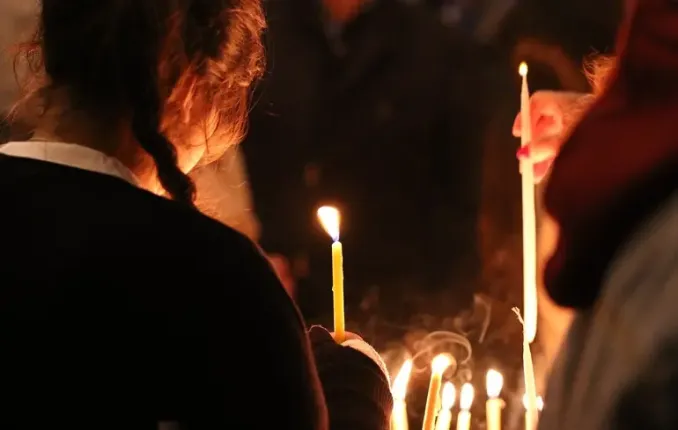St

Peter and Paul’s Day: Traditions and Their Significance Every year, on June 29th, Orthodox faithful in the East celebrate a special bright holiday — the Day of the Apostles Peter and Paul. It is one of the most revered church festivals, marking the end of the Fast of Peter, and it carries rich historical and cultural meaning. This holiday is not only about expressing gratitude and honoring these two prominent apostles but also about a series of traditions preserved in folk consciousness that deserve special attention and respect. Traditions of Celebrating the Day of the Apostles Peter and Paul The main feature of the celebration is attending religious services in churches, where believers gather to participate personally in prayers, hymns, and sacraments. On this day, it is especially common to pray to the apostles Peter and Paul, asking for blessings, healing, and protection from illnesses. Priests perform special services during which worshippers light candles, seeking the saints' intercession. Icons of the saints are decorated with flowers, symbolizing divine support and protection. Equally important is the family aspect of the holiday. On this day, hostesses diligently prepare festive meals, with many varied dishes on the table to demonstrate hospitality and respect for the sacred day. Traditionally, in villages and small towns, there was a custom called “guarding the sun” — gathering together, going to the highest point, and watching the sunrise to “warm” the new day and greet it with special rituals. This symbolized the beginning of summer festivities and was one of the ancient traditions of the folk calendar. Another interesting folk custom on Peter and Paul’s Day was celebrating the “wedding game.” This unusual rite involved choosing a “groom” — a young man — and a “bride” — a woman of middle age. They were seated on special wheels or sleds and ceremonially “married,” performing corresponding rituals and smiles. The holiday was also accompanied by cheerful games, dances, and songs. Evidently, these folk “marriages” symbolized prosperity, abundance, and well-being in families and villages. A special symbol of this day was the saying “Peter and Paul have delayed the time.” It means that with the approach of summer, specifically with this holiday, the long daylight hours shorten, and evenings become longer. This is a sign that the season of field and fishing work is becoming more active. For fishermen, the Day of the Apostles is a special day because it was believed that prayers to the Saints help catch more fish, and their intercession contributes to success in this crucial occupation. Prayers to the Saints Peter and Paul Prayers become an integral part of the celebration, recited not only in church but also at home, within families. Believers turn to the Apostles with requests for healing, protection from illnesses, and help in difficult life situations. Here is a sample of such a prayer: > O holy apostles Peter and Paul! I pray to you, do not leave me, a sinner, in this life’s struggle. Hear my words, addressed to you with faith and hope. Help me to receive healing from ailments and protect myself and loved ones from all evil. Bless my prayers and accept them into your hearts. Intercede for us before the Lord and grant mercy so that we may hope for eternal salvation and a holy life in God's kingdom. Amen. Another prayer involves personal requests to the apostles: > O great saints, apostles Peter and Paul! We ask you to be our intercessors in this difficult time. Protect us from illnesses, troubles, and all evil. Multiply our faith, grant us patience and strength to overcome life's hardships. May your holy support be our refuge so that we meet the future with joy and peace. Blessed and forever glorious be you and all the saints. Amen. In general, the Day of the Apostles Peter and Paul is not only a church holiday but also a folk celebration that unites families, communities, and generations. It preserves deep symbolism and multifaceted traditions passed down from generation to generation, strengthening the faith and spirituality of the Ukrainian people.

